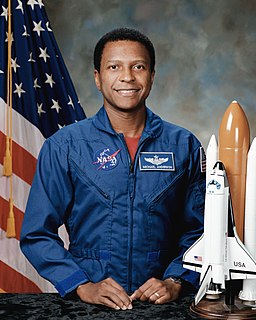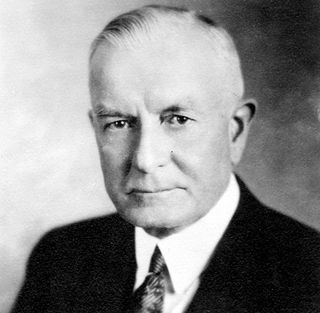A Quote by Martin Rees
I recall a lecture by John Glenn, the first American to go into orbit. When asked what went through his mind while he was crouched in the rocket nose-cone, awaiting blast-off, he replied, "I was thinking that the rocket has 20,000 components, and each was made by the lowest bidder."
Related Quotes
The first man-made satellite to orbit the earth was named Sputnik. The first living creature in space was Laika. The first rocket to the Moon carried a red flag. The first photograph of the far side of the Moon was made with a Soviet camera. If a man orbits the earth this year his name will be Ivan.
On Apollo 11 in route to the Moon, I observed a light out the window that appeared to be moving alongside us. It was either the rocket we had separated from, or the 4 panels that moved away when we extracted the lander from the rocket and we were nose to nose with the two spacecraft. So in the close vicinity, moving away, were 4 panels. And i feel absolutely convinced that we were looking at the sun reflected off of one of these panels.
The expense of getting into space is the rocket launch, the rocket itself. Rocket's right now, commercial rockets cost probably somewhere between $50, or $120, or $150 million per launch. And those are all expendable. That is, you've got to buy a new rocket for each launch. So, that really is the critical part. If there was some kind of really, a revolutionary breakthrough and the price of rockets fell by an order of magnitude, I mean, just imagine what that would do as far as getting access to more ordinary people.
Eventually private enterprise will be able to send people into orbit, but I suspect initially it's going to have to be with NASA's help. Whether it's going to be a consortium or one entity remains to be seen. I could be wrong. I could be one of the old fogies! Rocket science is tough, and rockets have a way of failing. It happens. A company has to be willing to bear the risk of its rocket failing. It's a very large capital investment.
Indeed the early history of rocket design could be read as the simple desire to get the rocket to function long enough to give an opportunity to discover where the failure occurred. Most early debacles were so benighted that rocket engineers could have been forgiven for daubing the blood of a virgin goat on the orifice of the firing chamber.





































